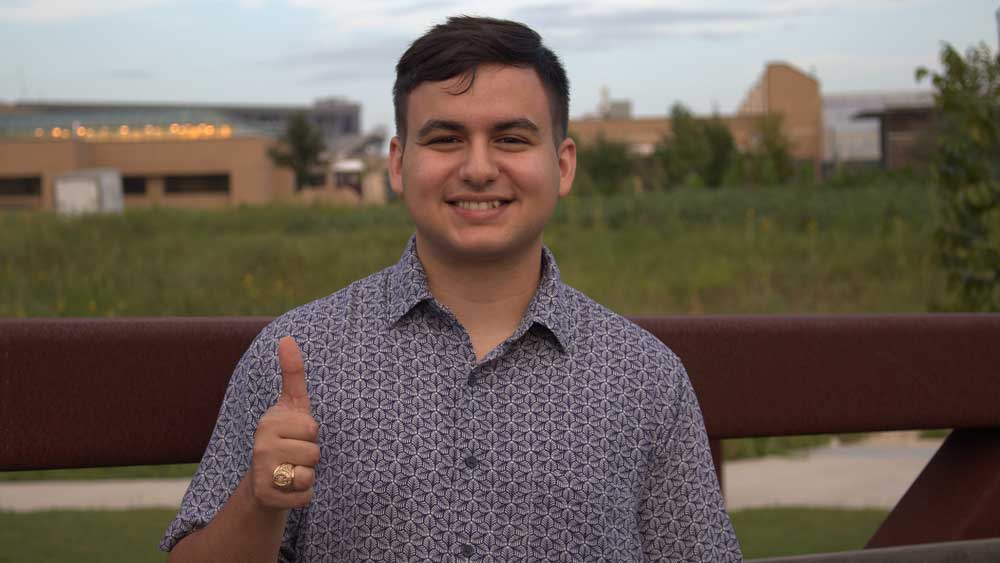
"I failed my first exam every freshman year, and I thought it was the end of the world," said Abimael Macias '22.
At first, Macias, a senior undergraduate student in the Artie McFerrin Department of Chemical Engineering at Texas A&M University, felt as though he didn't belong — an overwhelming feeling that many first-generation students face.
"It was not until I got admitted into the chemical engineering department that I gained a sense of belonging," he said. "I met some of my best friends and even went as far as to starting our own organization on campus.”
Chemical engineering is a very diverse major, and to Macias, that brings him a sense of security, a quality that many students look for.
“There are so many opportunities within this major that it just brings a sense of security,” says Macias. “I hope to one day work within the environmental or pharmaceutical sector of chemical engineering.”
Macias started Sophomores Leading On Promoting Equality, a leadership organization that emphasizes diversity, equity and inclusion. He said he strives to implement these values in all aspects of his life, especially in a work environment.
“Going into my career, I want to emphasize the importance of those values in a working environment and how they can help shape the company culture.”
Previously a mentee in the College of Engineering’s First-Generation Students Mentoring (FGEn) program, Macias is now a mentor for incoming engineers. The goal of the program is to provide a community for first-generation students, providing help with personal and educational goals as they trek through college.
“As a mentor, I have the privilege to give back to mentees and the program that helped me get to where I am today in my engineering career,” he said.
The FGEn program has shown to make a significant impact on the success of first-generation students in the College of Engineering. Staff, faculty and students are encouraged to join, either as a mentee or mentor, within the First-Generation Students Mentoring program.